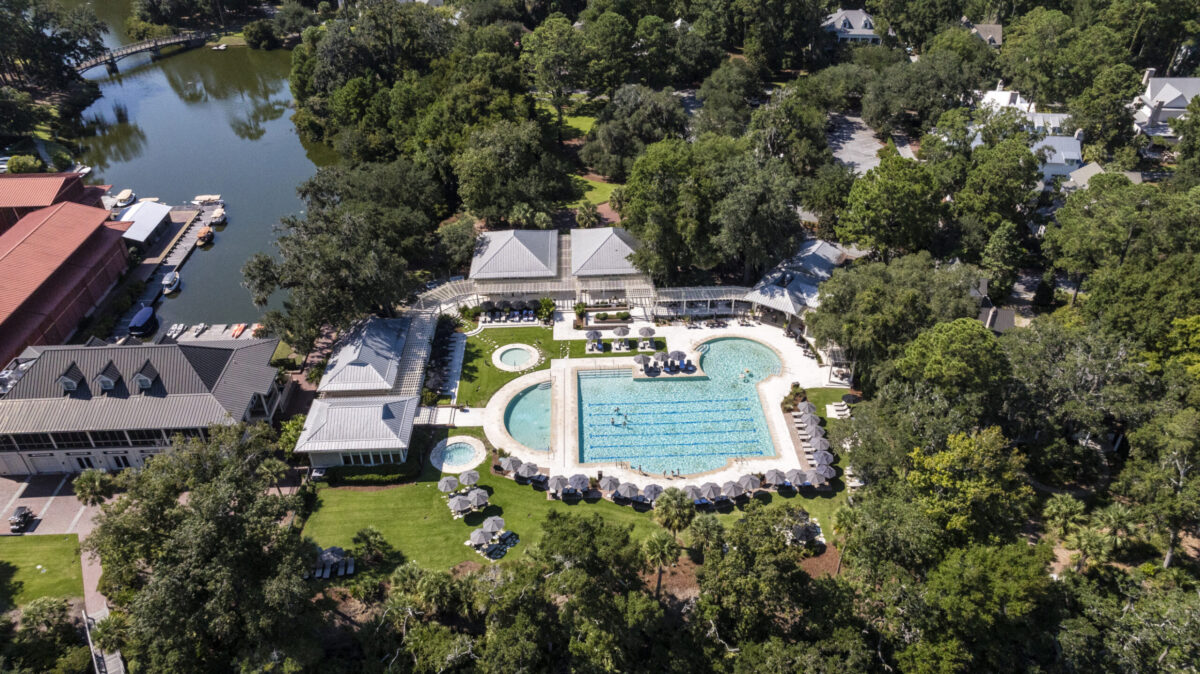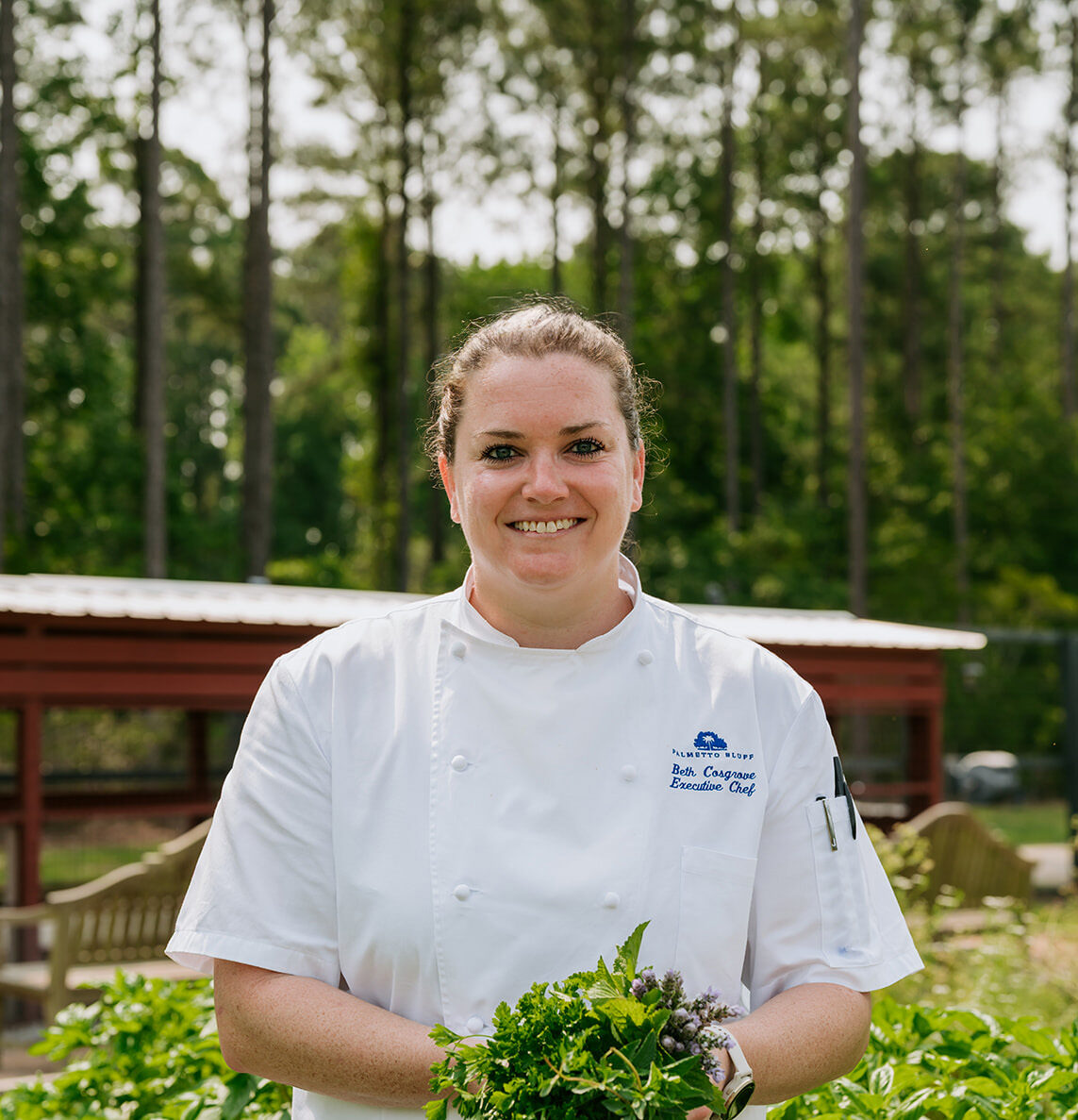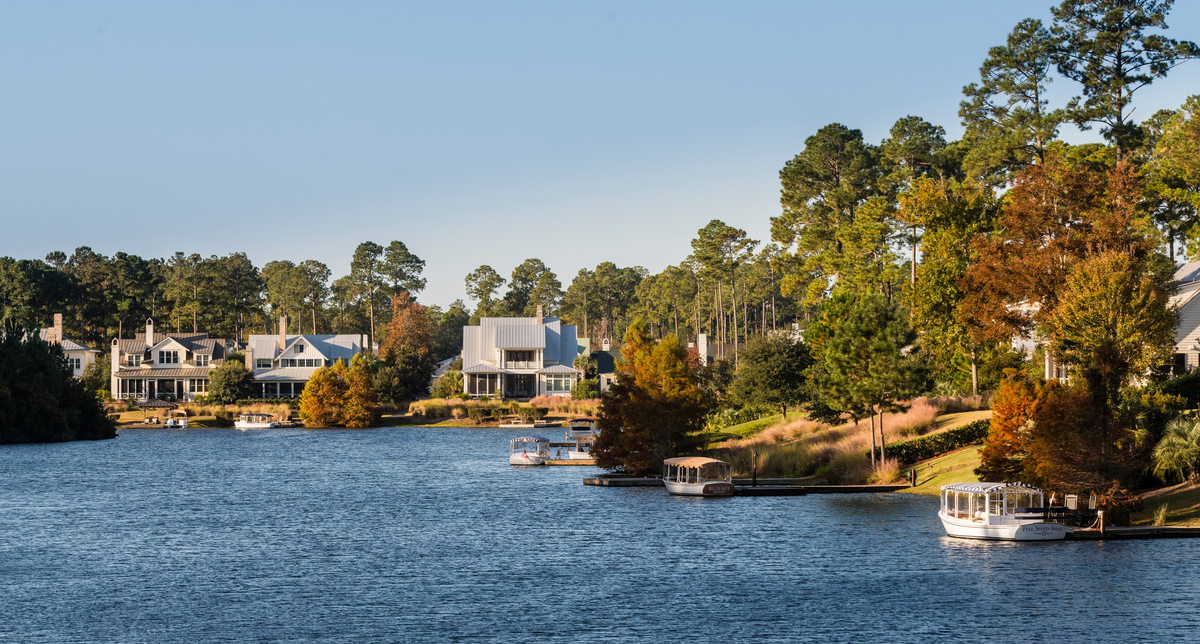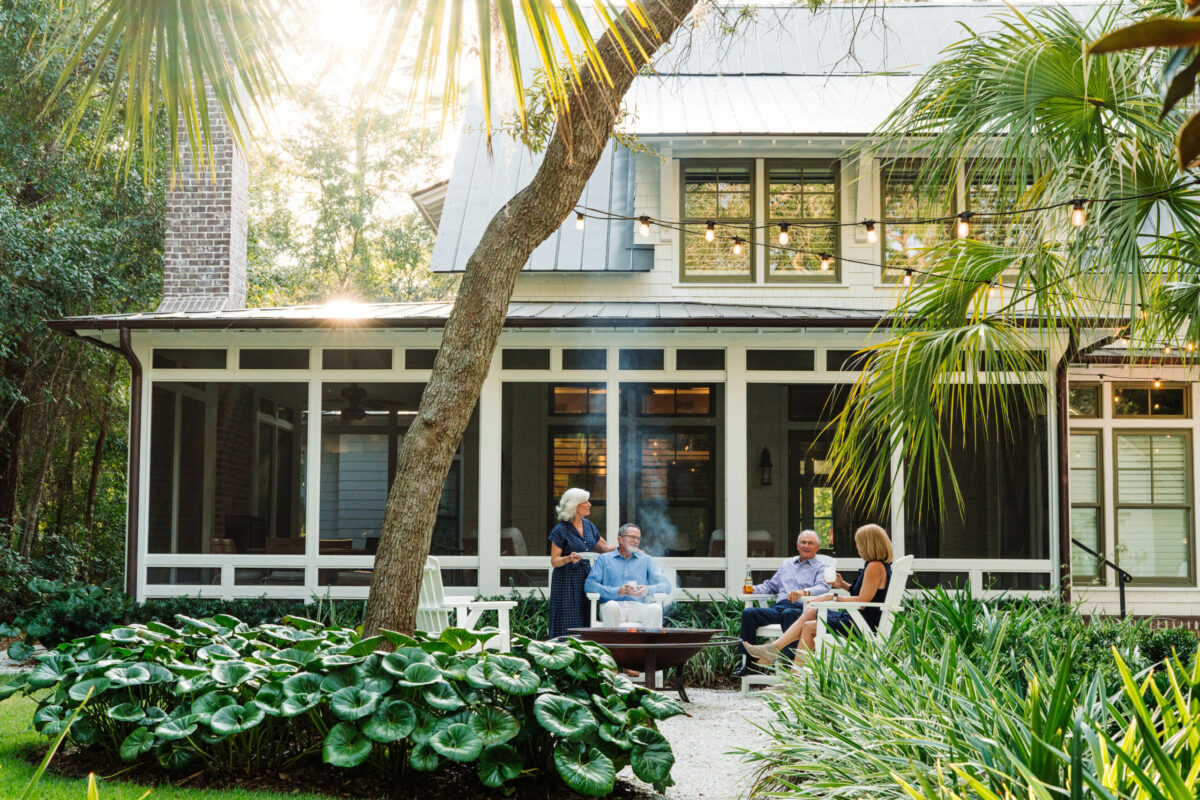Palmetto Bluff Real Estate Company Sales Office
Office Hours
Monday-Friday 9am - 5pm
Saturday 9am - 4pm
Sunday 12 - 4pm
Saturday 9am - 4pm
Sunday 12 - 4pm
The American Farmer
Ike Hill is a fifth-generation farmer. His son Fox makes the sixth. Their 1,300-acre family farm in St. George, South Carolina, holds more than a century of their family’s history. Pre-Depression, their family land surpassed 6,000 acres, and Hill candidly shares it was their bootlegging business that allowed them to hold onto those last 1,300 acres.
“Our farm has always been row crops—corn, tobacco, cotton, soy beans—diversified with livestock. Just enough pigs to butcher and sell to the neighbors. Grandma sold eggs. We’ve always had cows. And, we’ve always been a sustainable needs farm—meaning all cash. We’ve never borrowed any money for that farm. In the good years, we build. In the slow years, we scale back,” Hill says.
Every family has a story. And theirs is rich, marked with long days, dirt under their fingernails, and little rest. None of which matters when you have a love for the land. And that is where the Hills’ story intersects with the Bluff. Ike first stepped foot on Palmetto Bluff in 2000. Fox followed about a decade ago, working summers in high school and college and joining the team of The Lindsay Company (one of the Bluff’s contractors) two years ago. In 2000, Ike was responsible for moving the mountains of dirt it took to begin turning the Bluff into what you see today. (And mountain is no exaggeration. The 1 million cubic yards of dirt that Ike has moved would easily overflow the largest college football stadium.)
Ike’s love for the place came quick. And, he’s been at the Bluff in various roles ever since, making the 90-minute commute from St. George twice a day. Let’s do some quick math. He gets to Palmetto Bluff around 7:30 a.m. That means he leaves his house at 6:00 a.m., which means he was up hours before that working on his farm. So, when the Palmetto Bluff Development team reached out last summer and asked for the father-son duo’s tutelage on a potential farm at the Bluff, one must wonder—for just a second—why in the world they said yes.
A full-time job. A full-time farm. Plus, launching the Palmetto Bluff farm. Few would agree to that challenge.
“We like to work, at least that is what my wife says,” jokes Fox, his smile shaded by his cowboy hat. “The American farmer is dying, but if I can evolve the thinking of just a few people through this farm, convince people to support their local farmers, well . . . I’ve done my job.”
For Ike too, it is personal, almost biblical, “I want the best for the Bluff. It needs to be the perfect place. Before I die, I want to contribute to that in any way I can.”
So, for four hours a day, five to six days a week, either Fox or Ike is at the Palmetto Bluff farm overseeing the plantings, the watering, the bee pollination, and the harvesting. They’re meeting with the Palmetto Bluff chefs to understand what produce they’d like to feature on the menu and educating each other. For Ike and Fox, it is understanding how the chefs want to feature produce and herbs on their menus. For the chefs, they are developing an understanding of what grows well in this region. And, all parties are embracing the art of patience.

David’s Journey to Palmetto Bluff Born and raised in Lewisburg, West Virginia, David Johnson’s career path began with a moment of chance. While studying Finance and Economics at Marshall University, he walked into the Greenbrier Sporting Club’s real estate of...

Palmetto Bluff Club: Finding Your Perfect Fit Tucked into the heart of the Lowcountry, Palmetto Bluff is a place where life unfolds at its finest pace—unhurried, connected, and deeply rooted in community. Membership here goes beyond access to world-class amen...

4 Ways to Incorporate Coastal Fall Decor into Your Home in 2025If you are planning to decorate your home for fall, you might feel limited to warm colors and chilly weather. But if you live on the coast, you can easily incorporate coastal fall décor into your h...

Here in the Lowcountry, the Conservancy brings FeederWatch to life with guided sessions at the Conservancy’s bird feeders. Education and Outreach Manager Aaron Palmieri leads these gatherings, teaching attendees how to identify wintering species, choose the ri...

Chef Beth Cosgrove shares her favorite game day dip—with a Southern twist. Ingredients 2 cups cooked sea island red peas, crushed with a fork1 recipe of pimiento cheese dip (recipe below), room temperature2 cups crème fraiche1 cup fire-roasted be...

At Palmetto Bluff, newly built homes are more than residences—they are carefully crafted retreats offering the best of Lowcountry living. Palmetto Bluff Real Estate Co. Agent, Amanda Cutrer, shares the benefits of buying “new” in the Bluff. Builder Support ...

Visionary land planner Mark Permar reflects on Palmetto Bluff's rich history and its enduring connection to the land. With Anson on the horizon, the legacy of designing with nature lives on.How did you first get involved with Palmetto Bluff? I believe it was ...

Explore Available Listings with Room For the Whole Family At Palmetto Bluff, life moves at the pace of the tides; slow enough to savor, yet rich with moments worth sharing. And when it comes to welcoming the people you love most, the right home makes all the ...

Real Estate in Bluffton, SC: Trends, Updates, and Insights The first half of 2025 has been nothing short of remarkable for Palmetto Bluff Real Estate Company, with sales volume, transaction count, and market share setting a strong pace for the year ahead. As ...

Enhancing Coastal Living With Lowcountry Landscaping Trends The Lowcountry lies along the southeastern coast of the United States, a region known for its breathtaking landscapes, rich history, and unique culture. From the charming streets of Charleston to the...
Learn about the Palmetto Bluff Conservancy and how we keep the vision of our land in place.
On land or water, there is an ever-evolving variety of activities.
We do not attempt to independently verify the currency, completeness, accuracy or authenticity of the data contained herein. All area measurements and calculations are approximate and should be independently verified. Data may be subject to transcription and transmission errors. Accordingly, the data is provided on an “as is” “as available” basis only and may not reflect all real estate activity in the market”. © [2023] REsides, Inc. All rights reserved. Certain information contained herein is derived from information, which is the licensed property of, and copyrighted by, REsides, Inc.